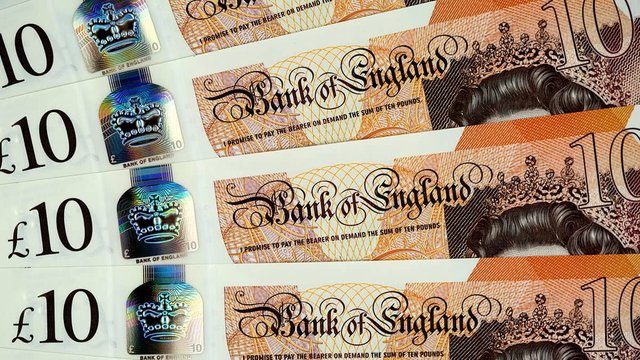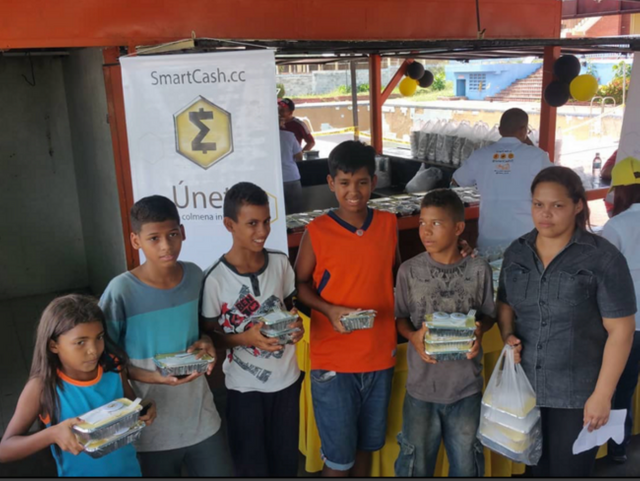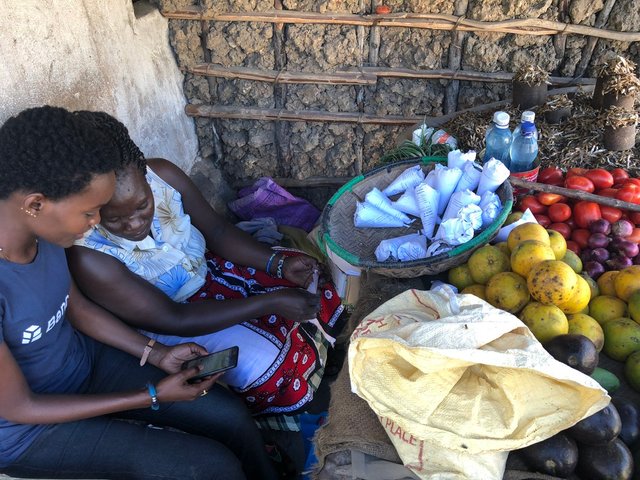The Fall of Fiat: Could Community Cryptocurrencies Be The Future of Money?
Fiat currency is not your friend. Sure, it may have the characteristics we have collectively agreed to represent money: it’s fungible, durable, divisible and portable. We might even agree on its trade value; Bob’s basic tomatoes should cost £1, Alice’s organic tomatoes are more scarce and cost £3 etc, because supply and demand dictates an object’s value in our society.

But despite the promises that may be printed on our banknotes, fiat currency isn’t backed by anything. Governments can print as much as they want, whenever they want. So a £10 note in your piggybank today will still be a £10 note next year, but its purchasing power is ever decreasing with so-called quantitive easing by central banks. Fiat currency is not a store of value.
This may not seem alarming at first, but imagine—for a moment—a scenario where all the money you’ve acquired literally becomes worthless? When wads of your hard-earned cash can barely buy you a loaf of bread, and your banknotes are reduced to toilet paper or repurposed into handbags…
It might be hard to fathom the idea of it happening to you, but no one expects their life savings to become worthless... until it does. It’s a toxic side effect of hyperinflation which has happened throughout the history of fiat currency; Germany in the 1920s, Zimbabwe in the late 2000s and even now in Venezuela, where just last month a kilogram of meat would have cost 9,500,000 bolívares ($1.45).
Interestingly, in a bid to curb its staggering inflation rate the Venezuelan government decided to simply “paint the roses red” and remove five zeros from its currency. A curious strategy. The new banknotes are called the sovereign bolívar, and the country’s exchange rate has now been pegged to a new state-backed cryptocurrency, the Petro.
The Petro has also come under a lot of scrutiny. The government claims the cryptocurrency is backed by the country’s oil and mineral reserves, however according to recent reports those reserves are yet to been found and the currency’s volume is virtually non-existent. But despite the fact that government-backed cryptocurrencies seem to contradict the decentralised nature of blockchain, it has once again thrown cryptocurrency into the mix as a solution to real-world economic crises.
.jpg)
Bitcoin is immune to hyperinflation; Satoshi Nakamoto wrote into the code that there can only ever be 21 million coins. Also the miners can only mine at a certain pace, and everything is open-source and transparent. But although some crypto-enthusiasts are encouraging Venezuelans to adopt Bitcoin, it’s not currently fast or efficient enough to be a viable payment method for processing day-to-day transactions, such as buying a loaf of bread.
Other crypto communities, such as Smartcash, have also made efforts to utilise blockchain technology in Venezuela to help people in poverty. But is it time to take crypto one step further and introduce blockchain-based community currencies to combat economic issues?

On the surface, everyone creating their own local coins sounds almost inflationary, but let’s imagine going to your home city, and purchasing some fruit with your very own citycoin. Your local greengrocer accepts your citycoin and pays his landlord with it, circulating the wealth within a localised area, and so on and so forth. If the landlord chooses to hold on to his citycoin and save up his wealth, he can do it safe in the knowledge that the currency supply can’t be manipulated by an external force. But could this actually work in practice?
A community currency pilot is currently taking place in Kenya right now, and in the city of Mombasa, people have successfully traded tomatoes, chapatis and other market goods using a tokenised version of their own local currency, the Bangla-Pesa.
The local currency was first introduced to the city five years ago to boost the local economy, however due to printing costs the Bangla-Pesa had never had a paper denomination below five. But by putting the currency on the blockchain, even the smallest fractions of money can still be traded quickly with zero fees, a real lifeline in a country where more than half the population lives below the poverty line.
The token’s value is generated within the community and stays within the community, and unlike fiat currencies that depreciate in value when governments print more cash, the Bangla-Pesa won’t generate more poverty because the blockchain can’t be manipulated.

The blockchain company Bancor, which founded a decentralised liquidity network for cryptocurrencies, is spearheading the movement alongside the non-profit foundation Grassroots Economics, and the aim is to empower Kenyans to create their own resilient economies which will also allow easy conversion between tokens and goods.
The pilot is showing what can be achieved when communities take control of their own economies, and it is something that could be replicated across the globe to offer a new way forward for our monetary systems. For centuries governments have dictated what is classified as legal tender, but ask yourself this: What would happen to government currencies if everyone collectively stopped using or accepting them tomorrow?
It is the community which truly holds the power, and a step away from fiat currency is a step in the right direction for all.
And in true government style, the people who started the Bangla-Pesa were actually put in prison at first because the Kenyan government saw it as a threat to their own state currency...
https://www.boell.de/en/2016/01/25/how-bangla-pesa-tapped-value-informal-community
Blockchain technology will undoubtedly give the people freedom of choice.
Hope new block chain technology is able to make it more easy to use. Like removing cash from the pocket and handing it over. Presently ppl find it less user friendly specially in developing countries because they are not confident of using there phones and computers while transacting cryptos. This apart from they being stigmatized by authorities and banks.
Really interesting concept, localized cryptocurrencies. They wouldn’t need to worry about scaling so much, and the word of mouth network effect is probably effective as well.
I think for tight knit communities such as those you mentioned in this article, this would be a game changer.
For those which see a lot of tourists, might need a slightly different set up, probably will need crosschain transactions for example.
This is a great article, thank you for sharing and bringing it to my attention. :)
@tinyearth, I do not understand anything written
There is so much wrong with this article. First 99% of all crypto IS fiat. It's not backed by anything.
"Bitcoin is immune to hyperinflation; Satoshi Nakamoto wrote into the code that there can only ever be 21 million coins."
Right, but it's constantly in hyperdeflation with rising prices and is no where near price stable to actually be a currency.
Hi Weilii, thanks for stopping by to read my article!
The OED definition of fiat currency is: Inconvertible paper money made legal tender by a government decree.
So to address your first comment: 99% of all crypto is not fiat.
Yes most cryptocurrencies are not convertible into a bar of gold or silver, but they have the option to be backed by assets. To address your second comment: At no point did I say Bitcoin is a stable currency which could replace money; in fact I suggested quite the opposite.
The article discusses whether localised community cryptocurrencies could work as money in the future. And it is of my personal opinion that people should have the freedom of choice.
Your government chooses not to back their currency with physical assets... with blockchain technology you can choose what type of currency you wish to use as an individual and what it's backed by. Thanks for reading :)
Congratulations @tinyearth! You have completed the following achievement on the Steem blockchain and have been rewarded with new badge(s) :
Click on the badge to view your Board of Honor.
If you no longer want to receive notifications, reply to this comment with the word
STOPCongratulations @tinyearth! You received a personal award!
You can view your badges on your Steem Board and compare to others on the Steem Ranking
Vote for @Steemitboard as a witness to get one more award and increased upvotes!